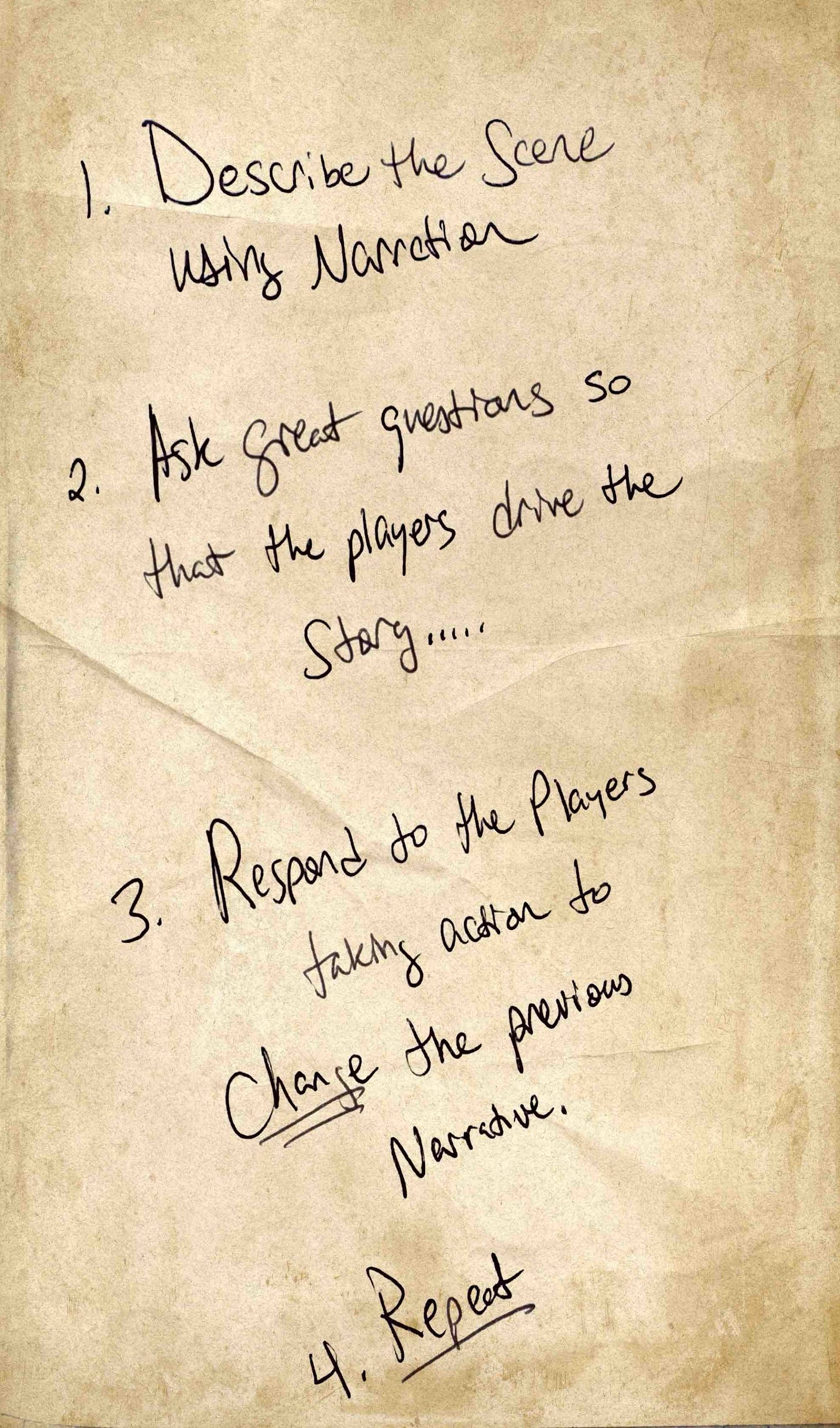Insight
I once ran an weekend retreat playing Dungeons and Dragons for a group of high schoolers. 8 hours a day, we rolled dice and told stories. It was exhaustingly fun.
One of my gentlemen said, “you know, Mr. Jon - I know this isn’t therapy, and I’ve been to a lot of therapy, but this sure is therapeutic.”

I loved the way he said that - I can’t forget it. I knew he believed what he said, but why did it work - we were only playing games.
The great need for recreation in our lives, especially that involves a screen and notification free weekend aside, I really think that the therapeutic aspect of the game was in how I personally ran the games.
I’m not just any old dungeon master. In fact, I’m probably a terrible dungeon master by any poll. But one thing I do in my games that signifies you have sat down at Jon’s table is that I ask great questions.
Questions
This process that asks insightful questions to the players activates empowerment in the storytelling and rather than simply responding or reacting to the dungeon master’s whim, the players are driving the story within minutes of the start of the game.
This is therapy, or at least, it’s therapeutic.
I think most of our entertainment is passive. As viewers, we sit back and enjoy the show, one gulp at a time, and pay for more once our bellies grumble with hunger. It is healing and empowering to create your own entertainment.
By asking great questions, you end up providing this hit of therapy yourself, even in your entertainment. Now, take this skill to your own life.
Great questions to ask regarding about a Time Period in your Life such as graduation. These time periods are marked by an incident and last for a some time (until the period is complete).
marriage
child-rearing years
mid life crisis
major career shift
an across the country move
death of a pet
bad new from the doctor
placing your parents in a retirement home,
re-marrying after divorce
a surprise pregnancy
losing 80 pounds and keeping it off
Ask these 6 questions and hide nothing from your self. Ignoring the clutter in the corner serves no one. But you must be prepared to process what you bring to your awareness, so this is why we journal.
What about my desires has changed?
How has my physical environment changed and how does it reflect my inner world changing?
What can I afford to lose and what do I want to keep?
What is the new life that I can nourish that has emerged?
What do I now appreciate that I used to be unaware?
What do I need to release, let go and grieve as loss?
Direction
Select a time period. Journal the answers to those 6 questions. Review your journaling and then write down any further insights you have, answer any new questions that may arise from your intuition. Finally - give yourself a direction to face or an action to take.
So, journaling may not be therapy, but if you ask the right questions, it sure it therapeutic. And as always, may your story continue.



